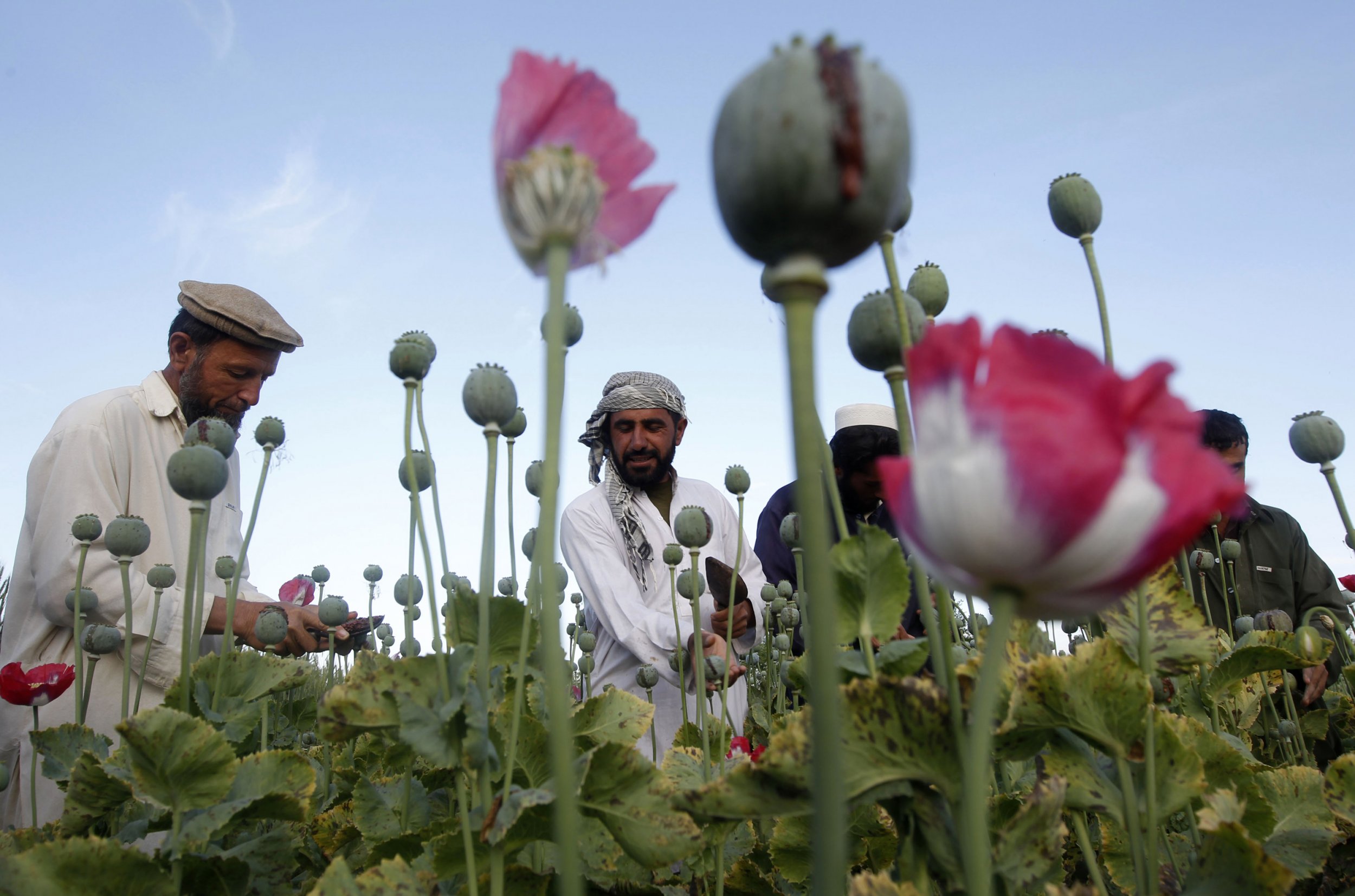
This article first appeared on Reason.com.
At a House hearing on March 16 on reconstruction spending in Afghanistan, Rep. Thomas Massie (R-Ky.) pressed witnesses from the Department of Defense on what kind of metrics they use to gauge success in their counter-narcotic efforts in that country.
"The war on drugs in Afghanistan," Massie concluded, "to the extent there is a war on drugs, has been a failure."
The United States has spent $113 billion in Afghanistan since 2002, on reconstruction efforts alone—that money has been spent on the Afghan National Security Forces (for whom U.S. troops remain in Afghanistan to support fifteen years later), promoting good governance and "engaging in counter-narcotics," according to General John Sopko, the special inspector general for Afghanistan reconstruction.
According to Sopko's testimony, 8.4 billion of those dollars were spent on counternarcotics efforts specifically.
What did the U.S. have to show for it? Massie couldn't get an answer, despite 90 percent of non-pharmaceutical opiate production happening in Afghanistan and opium being one of the most successful cash crops for Afghanistan since the American invasion. Massie suggested the rise in opium production in Afghanistan could be related to the heroin "epidemic" in the U.S.
After the initial American invasion, the U.S. briefly flirted with supporting the cultivation of cotton in Afghanistan—which had the potential to undercut opium production—but bungled the effort, as Rajeev Chandrasekaran wrote in his 2012 book on the Afghanistan war, Little America.
Sopko said Afghan farmers were producing more opium "now then they did during the Taliban years." In fact, the U.S. spent $43 million in 2001 in support of the Taliban's poppy eradication efforts, just six months before 9/11 and seven months before the start of the U.S. war in Afghanistan that toppled the theocratic regime. "It has been a successful export for the last 15 years that we have been there," Sopko said.
Christine Abizaid, the deputy assistant secretary of defense for Afghanistan, noted that opium production had gone down in the last year, but that that was largely due to weather patterns.
She insisted the DOD's counternarcotics spending was successful because the money largely went to support an Afghan aviation program, "the special mission wing," which was "one of the most successful programs in Afghanistan," even though she couldn't say "whether that's affected the overall levels of opiates and poppy cultivation" because she didn't have those numbers.
Top men. Top women.
Ed Krayewski is an associate editor at Reason.com.
Uncommon Knowledge
Newsweek is committed to challenging conventional wisdom and finding connections in the search for common ground.
Newsweek is committed to challenging conventional wisdom and finding connections in the search for common ground.
About the writer
To read how Newsweek uses AI as a newsroom tool, Click here.








